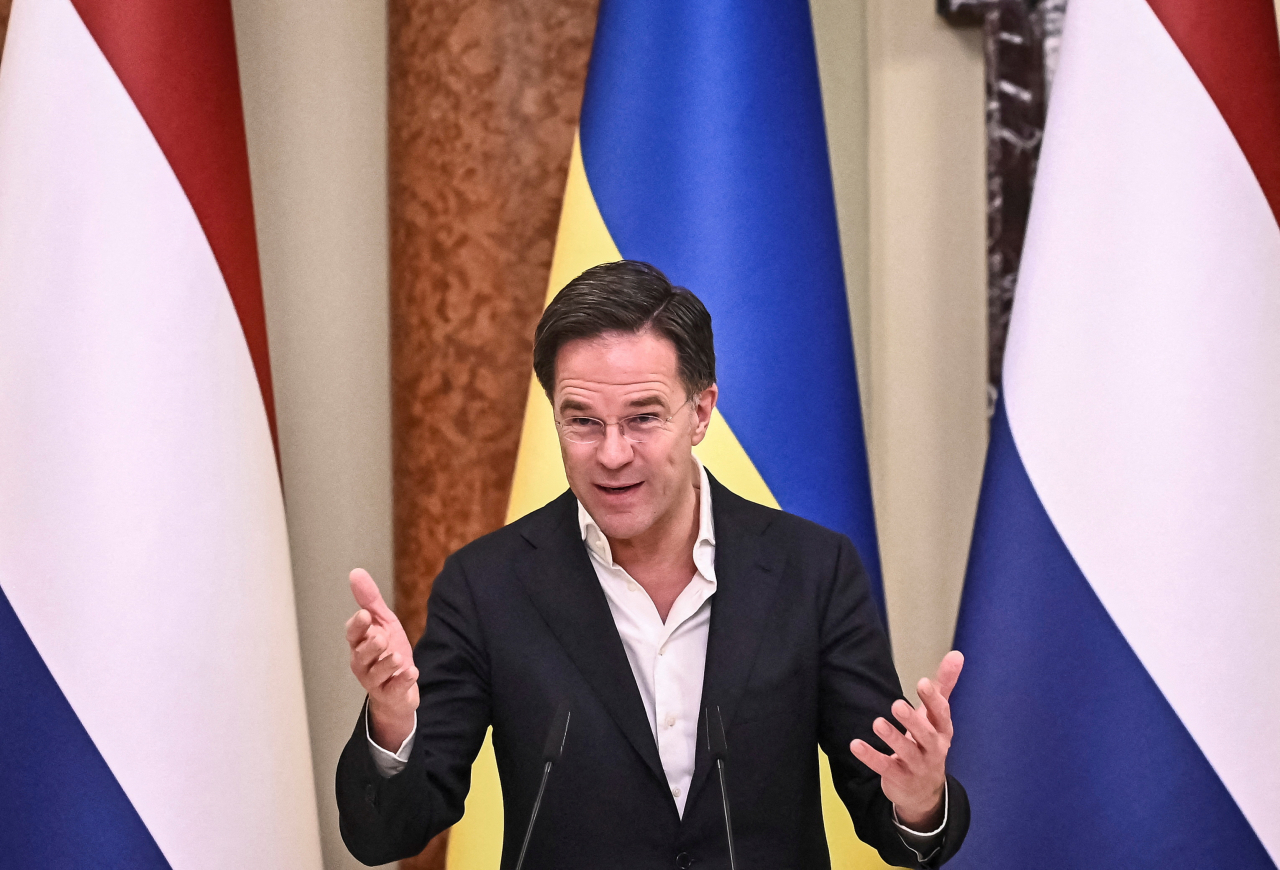Voters offers clean slate in election to replace Netherlands' longest-serving leader
By APPublished : Nov. 22, 2023 - 21:58

THE HAGUE, Netherlands (AP) -- There's one thing that's certain for Dutch voters casting ballots Wednesday in a general election: Mark Rutte, the Netherlands' longest-serving prime minister, is on the way out . All the rest is up in the air in a knife-edge vote.
Rutte's replacement after 13 years in office could be the country’s first female premier or a social democrat who left his job as the European Union's climate czar to return to national politics. The next prime minister also might turn out to be an anti-Islam lawmaker or a centrist who created his party only three months ago.
“It feels like a very important election year because a lot of things can change now,” said clinical midwife Jacobine Visser, 48, as she voted in Amsterdam.
She said the election is “a big choice between very much right and left. And I really don’t want the right wing to be in power.”
There are a total of 9,823 polling stations across the nation of nearly 18 million, with voters casting ballots for a total of 1,128 candidates from 26 parties at locations ranging from windmills to churches to the Anne Frank House museum in Amsterdam.
The outcome after polls opened in the morning is hard to predict given what happened in other European elections in recent months. Populist and hard-right parties triumphed in some EU member nations and faltered in others. Now, it's the election in the Netherlands that has people waiting to see which way the continent’s democratic balance will tip.
Polls showed four political parties, including the far-right Party for Freedom of firebrand Geert Wilders, were neck and neck going into Wednesday’s election. Forming the next government will require weeks or months of coalition talks between parties.
A poll released Tuesday put Wilders' party very narrowly ahead of Rutte's liberal, pro-free trade People's Party for Freedom and Democracy and a center-left bloc made up of the Labor Party and Green Left.
If the ruling party manages to clip Wilders' wings, it would pave the way for Justice and Security Minister Dilan Yeşilgöz-Zegerius to become the first woman to occupy the prime minister's office known as the Little Tower.
Yeşilgöz-Zegerius was elected leader of the People’s Party for Freedom and Democracy, or VVD, after Rutte resigned. Born in Turkey, she is a former refugee who now advocates a crackdown on migration as the Netherlands struggles to accommodate asylum-seekers .
Veteran politician Wilders, whose poll numbers have risen steadily during the campaign, goes much further, calling for what he calls an “asylum stop” and pushbacks of migrants at Dutch borders. He also wants to organize a referendum on quitting the European Union.
In a final debate Tuesday night, he sought to play down his anti-Islam rhetoric, saying he wanted to be “a premier for all Netherlanders, regardless of their religion or background.”
“I have the best intentions for the Dutch people in mind,” Wilders said as he voted at city hall in The Hague, flanked by two security guards who shadow his every move due to the numerous death threats he receives. He said his election program "might not be what some of the parties in Europe or other countries ... strive for but, hey, that is democracy.”
Once Wednesday's votes have been counted, party leaders will have to negotiate the makeup of the next governing coalition. After the 2021 election, it took more than nine months for them to put together a four-party arrangement that was the same as the previous government's.
Rutte's fourth and final coalition resigned in July after failing to agree on measures to rein in migration . The issue was one of the dominant themes of the campaign along with how to restore trust in the central government that was eroded by a series of scandals that tarnished Rutte's time in office.
The leader of the movement to reform government is Pieter Omtzigt, a Dutch lawmaker who set up his New Social Contract party over the summer. The party shot up in opinion polls ahead of the election.
The former Christian Democrat has long campaigned for more transparency in government and better protection for whistleblowers. He also has worked on behalf of victims of scandals, ranging from child benefit recipients who were wrongly labeled fraudsters by tax inspectors to people in the northern Groningen province whose houses were damaged by earthquakes caused by gas extraction.
“After years of scandals with the current government, they have the choice of doing more of the same or taking a new way," Omtzigt said after casting his vote early in the morning.
The heavyweight on the political left is former EU Climate Commissioner Frans Timmermans, who left his international career to return to his socialist roots and head the Labor Party-Green Left bloc. Even if his bloc wins the most seats, he could have trouble building a left-of-center coalition in the politically splintered Netherlands.



















![[Today’s K-pop] Treasure to publish magazine for debut anniversary](http://res.heraldm.com/phpwas/restmb_idxmake.php?idx=642&simg=/content/image/2024/07/26/20240726050551_0.jpg&u=)